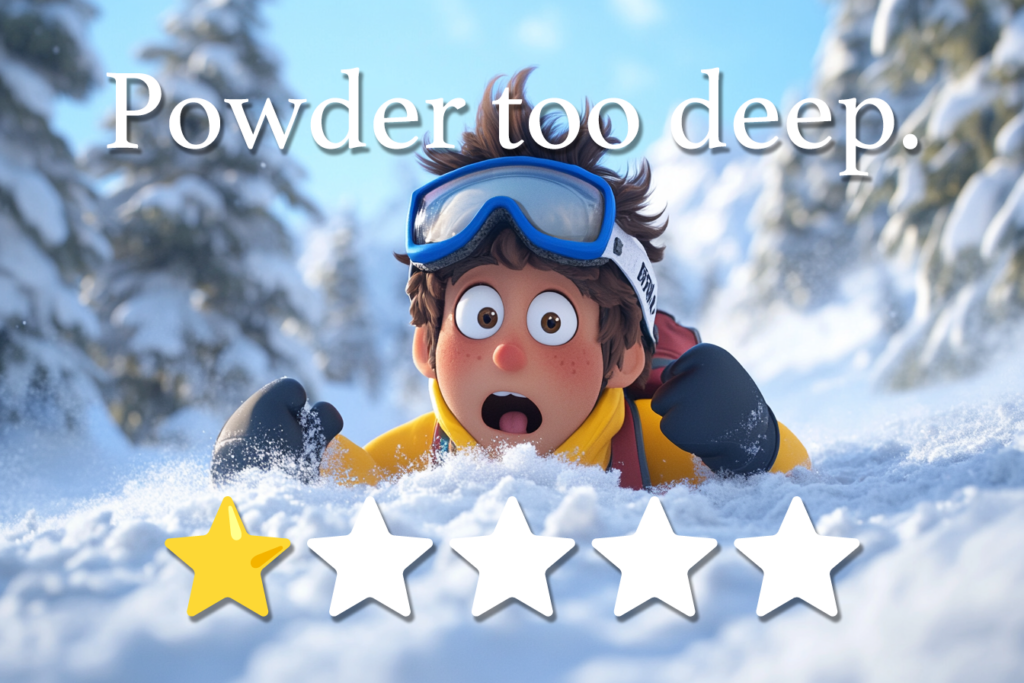
Tourists recently called Vienna’s famous Schönbrunn Palace “just a huge, boring, yellow building.” and “Dull as dishwater.”
The Vienna Tourist Board loved that review so much, they made it the centerpiece of a campaign.
They got it: Strong products generate strong reactions. Both ways.
You can try to fight this reality (which is usually a waste of resources), or make it work for you.
Liquid Death built a whole website celebrating people who call their water stuff like “overpriced canned trash.” Their response? “Thank you for helping us grow into a $1.4B brand.” They even created two “Greatest Hates” albums with tracks like “Worst Name for a Water Company” and many other, much funnier titles I won’t mention in a polite email. (But you can download and enjoy them here.)
Snowbird Ski Resort in Utah turned a one-star review calling their slopes “too advanced” into billboard gold. Their response? An entire campaign aimed at expert skiers using actual review content like “powder too deep.” (For a serious skier, the deeper the better.)
Your customer’s tank brain knows something important: Nothing remarkable is universally loved.
And if your product doesn’t have haters, it probably doesn’t have passionate fans either!
Action for today: Sort your reviews from worst up and give them an open-minded, non-defensive read. (It’s hard, I know.) Which ones could you embrace and own? The complaints that make you cringe the most might be your strongest differentiators.
Ready to turn your critics into promotional content? Have fun with it.
Had similar experiences? Tap reply and tell me about them!
Laurier
Product Payoff: The founders of La Croix sparkling water faced endless mockery about their “pretentious” pronunciation (it’s La-CROY, not La-CWAH in America, apparently). Instead of correcting critics, they printed “rhymes with enjoy” on every box. Today that “problem” is part of a great brand story.
